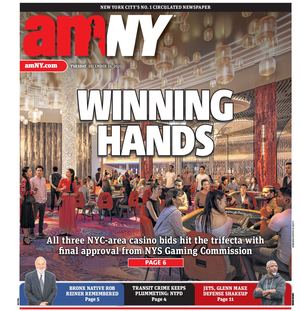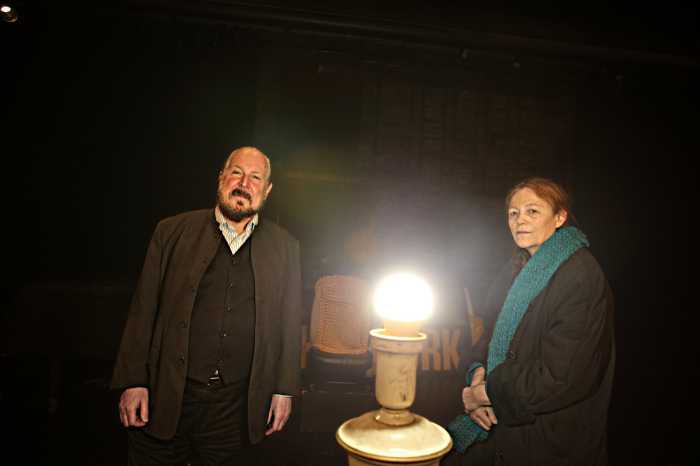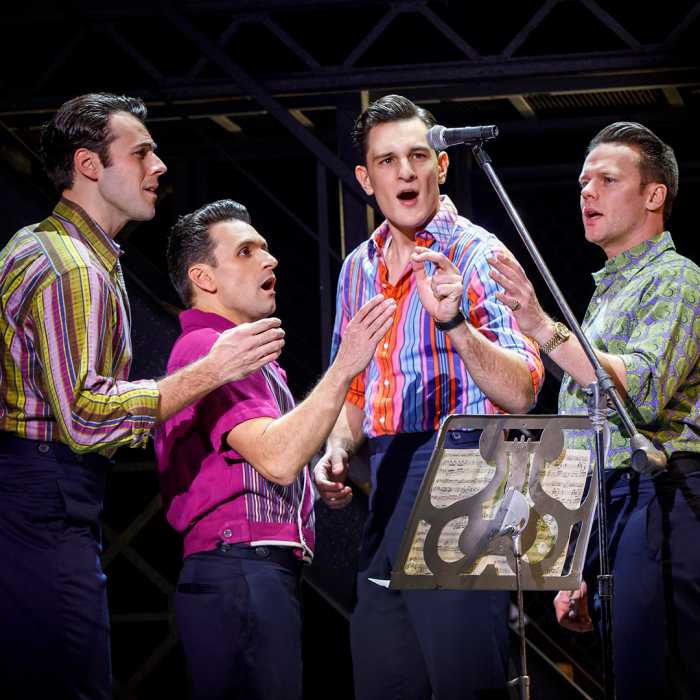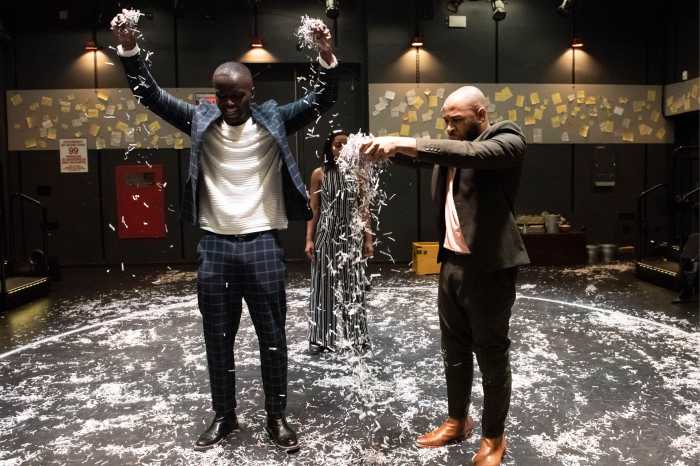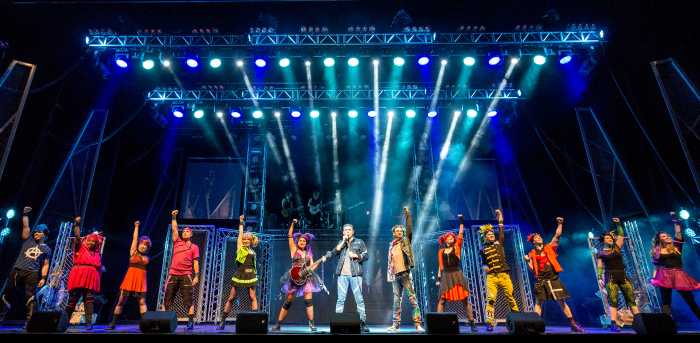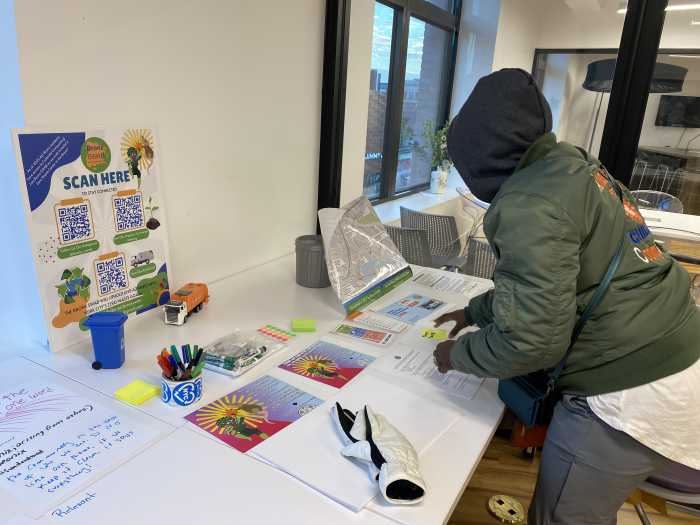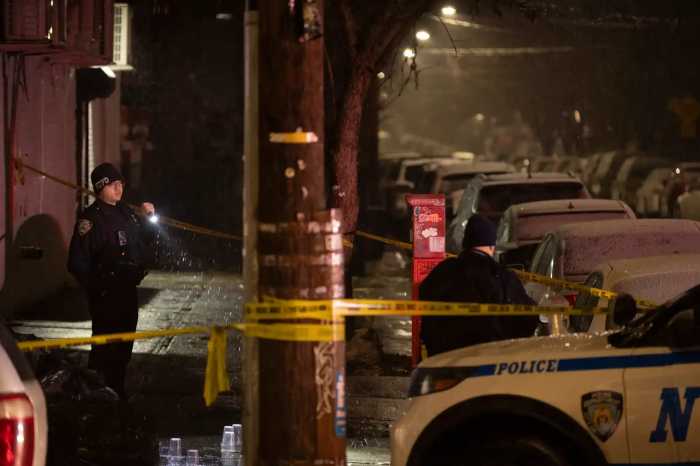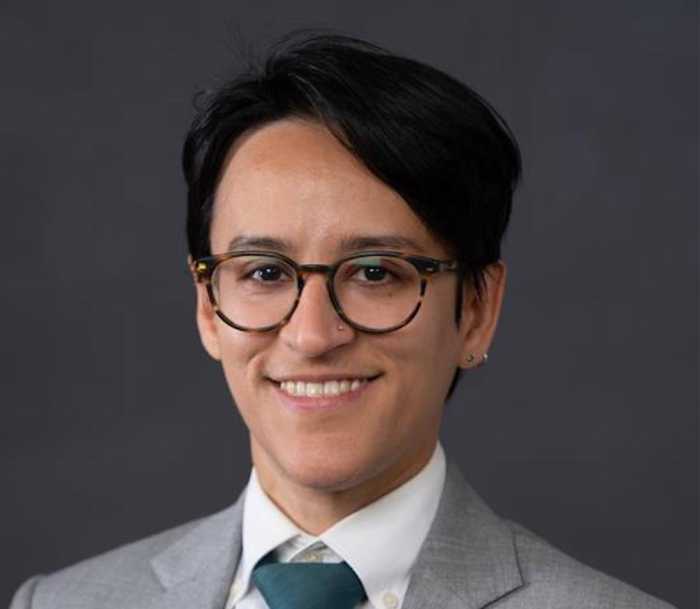Two not-for-profit Off-Broadway companies, The New Group and Manhattan Theatre Club, are currently presenting big, bold, and raw new works that try to draw a connection between historical and contemporary hate against minorities.
“Black No More,” an Afrofuturist hip-hop musical based on a 1931 satirical novel by George S. Schuyler, imagines the far-reaching societal and personal effects of an invention that changes skin color from Black to Caucasian, including the emptying out of Harlem, the loss of Black-owned businesses, and the violent mobilization of white supremacist groups.
In this production, when Black characters are turned Caucasian, the actors undergo no physical transformation, emphasizing the idea that the change is only superficial in nature.
It has been put together by a very impressive crew, including book-writer John Ridley (“12 Years a Slave”), musician Tariq Trotter (better known as Black Thought of The Roots), modern dance choreographer Bill T. Jones (“Spring Awakening”), and director Scott Elliott.
The cast (unusually large for Off-Broadway) is led by Brandon Victor Dixon (“Hamilton”), Lillias White (Tony winner for “The Life”), Ephraim Sykes (“Ain’t Too Proud”), Howard McGillin (“Phantom”), Jennifer Damiano (“Spider-Man”), and Trotter himself.
“Black No More,” which is being financially underwritten by the lead producer of “Hamilton,” appears to want to position itself as a successor to “Hamilton.” Interestingly, although “Hamilton” was hailed as a “game-changer” when it first premiered Off-Broadway exactly seven years ago, it did not lead to a wave of new musicals that were as artistically groundbreaking, culturally diverse, or musically innovative.
Despite a very intriguing and unique score that is built upon elements of jazz, rap, pop, and R&B, the book of “Black No More” is overwritten, ponderous, and unfocused in plotting and tone (uneasily mixing satire with earnestness and melodramatic twists). It would benefit from a lot more development and workshopping.
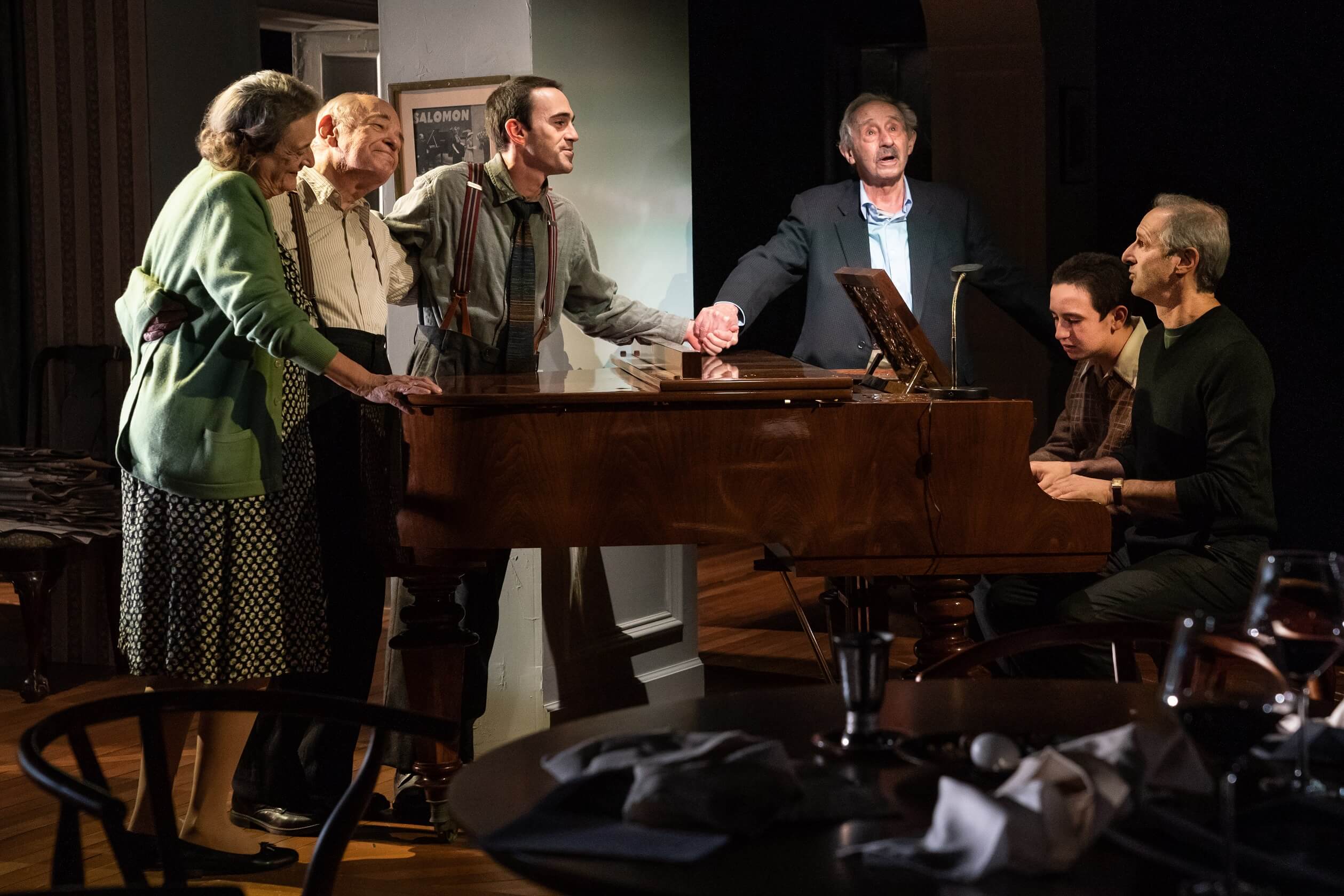
“Prayer for the French Republic,” a three-hour, two-intermission, time-shifting drama by Joshua Harmon (who previously won acclaim with his dark comedies “Bad Jews “ and “Admissions”), depicts assimilated Jews in Paris as they confront anti-Semitism during World War II and 70 years later with the rise of far-right politician Marine Le Pen.
After their son is injured in a hate crime, the members of an upper-middle-class family (joined by a distant, college-age, female cousin, who is spending a year abroad) question whether they need to move to Israel in order to protect their safety. During the play’s final scene, they discuss the situation with a man in his 80s who survived the Holocaust as a teen. They also ponder how Jews became the target of hate in the first place.
With direction by David Cromer (“The Band’s Visit”) and a revolving scenic design that allows for quick shifts in time and location, the excellent cast includes Richard Topol (“Indecent”), Betsy Aidem, Molly Ranson, and Yair Ben-Dor.
Like “Black No More,” “A Prayer for the French Republic” is an ambitious and urgent work that would probably benefit from further editing. While much of the play is engaging and haunting, a good deal comes off as cliched or expository (especially the narration by Topol’s character).
Notwithstanding, both shows are very interesting, often compelling, and worthy of support from serious theatergoers.
“Black No More” runs through Feb. 27 at the Pershing Square Signature Center, thenewgroup.org. “Prayer for the French Republic” runs through March 13 at City Center Stage I, manhattantheareclub.com.
